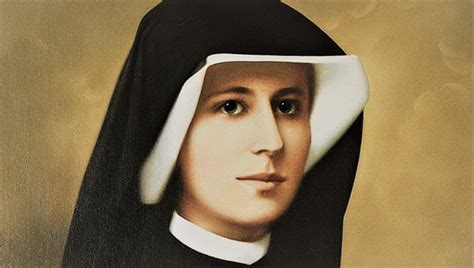Devotions are important in the lives of many Christians. They give the spiritual life focus and will deepen ones relationship with God. One such devotion is to the Divine Mercy based on the revelations given to St. Faustina.* Though I am not usually a big fan of private revelation, this is one of several that I believe should be given some attention.
An excellent place to start is a book from 2013, by Vinny Flynn, Mercy’s Gaze: 100 Readings from Scripture and the Diary of St. Faustina (Marian Press). Laid out over each day of the year, the meditations are either from St. Faustina’s thoughts or from her communications from Jesus.
I highly recommend this book for two reasons. First, there are scripture readings as well as the excerpts from St. Faustina’s diary, providing the reader a broader context from which to ponder her words. Second, these meditations reveal more deeply the meaning and reality of the mercy of God, the inner healing it brings, as well as the deepening compassion for others which it elicits in us.
We learn, for example, from St. Faustina that we need to pray for the conversion of sinners. To sin implies the freedom to choose, so to pray for the conversion of sinners is to pray that they look deeper within themselves and respond to God’s grace.
Jesus, we are told, said to St. Faustina:
“You always console me when you pray for sinners. The prayer most pleasing to me is the prayer for the conversion of sinners. Know, my daughter, that this prayer is always heard and answered.”
When we pray her “Chaplet of Divine Mercy,” each of us is included in the prayers of those who pray: It’s inclusive, leaving no one out in the cold. Whoever prays the chaplet, receives an aid to grow in love, as well as the ability to forgive those who have hurt or offended them in anyway.
Prayer always goes full circle, I believe. I am a sinner, I often choose badly, so I am in need of others to pray for me. That is what the body of Christ is about; we uplift each other in our prayers and works
In the section of the book marked “Be Merciful” St. Faustina records, “It should be of no concern to you how anyone else acts; you are to be my living reflection, through love and mercy.” This is a call to see others more deeply, in a way that generates love and mercy.
We are called to love in a way that excludes no one, a daunting task that can happen only with the healing that grace brings about. The more we know ourselves, the less we will judge others harshly. We no longer seek mercy for ourselves alone and justice as we understand it for others, but we seek conversion and healing for all.
In the simple prayer: “For the sake of his sorrowful passion, have mercy on us and on the whole world,” one comes to the conclusion that we are indeed commanded to love and pray for all – enemies as well as loved ones, strangers as well as friends. It’s not a sentimental devotion, but an invitation to stretch our hearts to the breaking point, and, perhaps, to be broken. The reward for loving is to love more.
The back of the book contains prayers, mostly from the Old Testament, extolling God’s mercy, as well as prayers from St. Faustina’s diary that can give a deeper understanding of the importance of prayer in our lives.
For most people judgment and punishment are easy to understand. We need no private revelation about that. Mercy, however, is very difficult to understand. Infinite love and infinite mercy, may take a lifetime to comprehend. We may spend our lives seeking to know the depth of compassion God the Father has revealed to us through Christ Jesus.
*Maria Faustyna Kowalska was born Helena Kowalska, August 25, 1905 in Głogowiec. She joined the Congregation of the Sisters of Our Lady of Mercy in 1925, and died October 5, 1938 in Cracow, Poland. In 2000 she was canonized by the Catholic Church as Saint Faustina. She is known and venerated within the Church as the Apostle of Divine Mercy.















Thanks for the review. Divine Mercy is really important to our family. I will get this book.
Thank you, I hope you like it.
Peace
mark